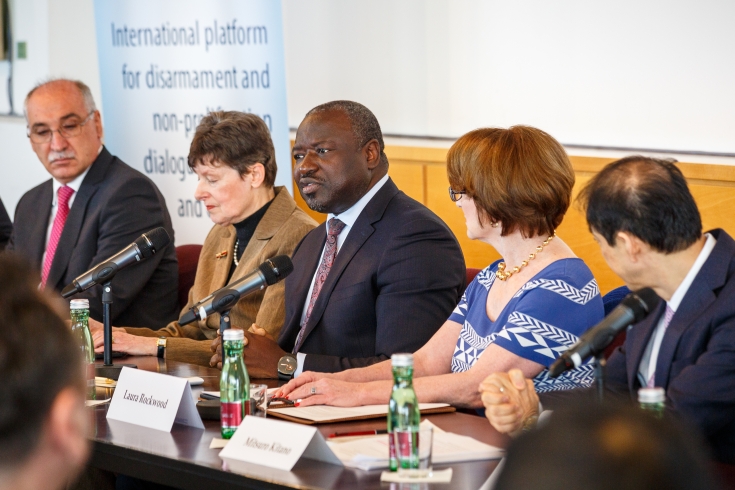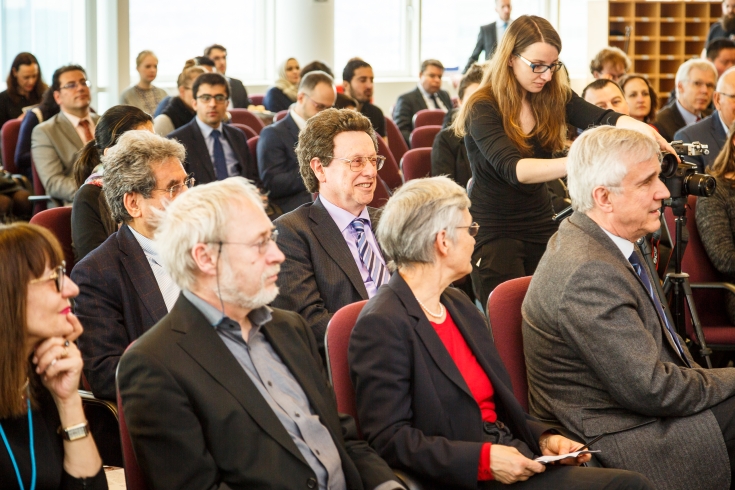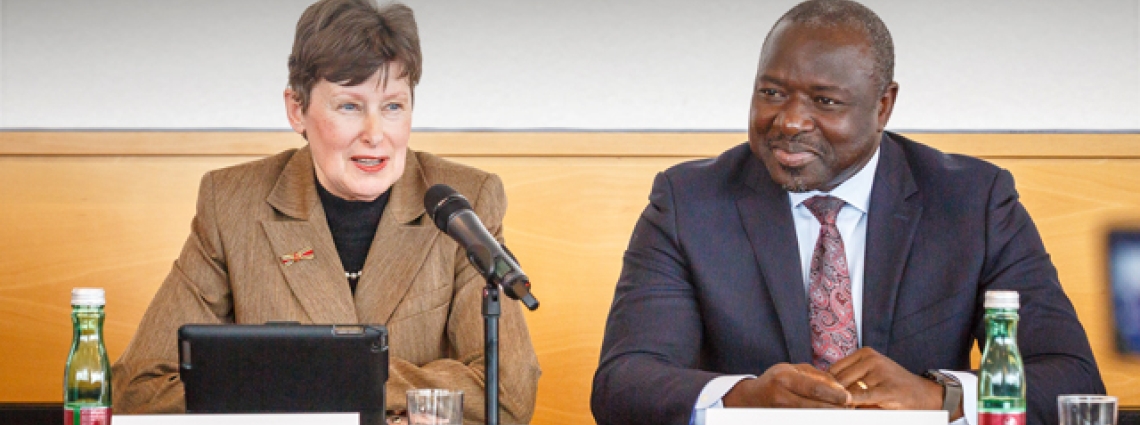The CTBT at 20: Re-Energising the Global Debate – VCDNP panel discussion
Zerbo was joined by an esteemed panel including the co-chairs of the 2015 Article XIV Conference Mitsuru Kitano, Permanent Representative of Japan to the CTBTO, and Kairat Sarybay, Permanent Representative of Kazakhstan to the CTBTO. Kitano and Sarybay both provided their insights into how the Article XIV Conference, designed to promote the entry into force of the Treaty, contributed to galvanising support for the CTBT.
In addition, they were joined by Merav Zafary-Odiz, Permanent Representative of Israel to the CTBTO; Mohamed Hussein H. Zaroug, Permanent Representative of Sudan to the CTBTO; Andrew Schofer, Chargé d’Affaires, United States Mission to the International Organizations in Vienna; Mohammad Omari, Scientific Counsellor, Permanent Mission of Jordan; Angela Kane, Senior Fellow at VCDNP and CTBTO Group of Eminent Persons (GEM) member; and moderated by Laura Rockwood, Executive Director of VCDNP.
The panel suggested confidence building measures to overcome existing hurdles to facilitate progress toward the entry into force of the Treaty. In addition, the representatives of Annex 2 States on the panel, Israel and the United States, shared their views on why their respective states had not yet ratified the Treaty.

Lassina Zerbo (centre), Executive Secretary of the CTBTO, addresses the audience.
“Young diplomats and students have great ideas on how the Treaty can move forward. I hope that in the future the next leader of the CTBTO will come from this group.”
In attendance was William Potter, Founding Director of the Center for Nonproliferation Studies (CNS) and Sam Nunn and Richard Lugar Professor of Nonproliferation Studies at the Middlebury Institute of International Studies at Monterey, who also expressed his belief in the benefits of fostering young talent to promote non-proliferation aims. “CNS and the VCDNP share the mission of “training the next generation” of non-proliferation and disarmament specialists” commented Potter. “In this regard, there is a close correspondence between our work and the efforts of the CTBTO to engage young people around the world on issues of disarmament and non-proliferation.”

William Potter (centre), Director of the Center for Nonproliferation Studies (CNS) and Sam Nunn and Richard Lugar Professor of Nonproliferation Studies at the Middlebury Institute of International Studies at Monterey
“What is particularly rewarding about working with young people is that they are idealistic, full of energy, and believe that anything and everything is possible; traits that all too often are missing among more experienced diplomats and government officials”
30 Mar 2016
